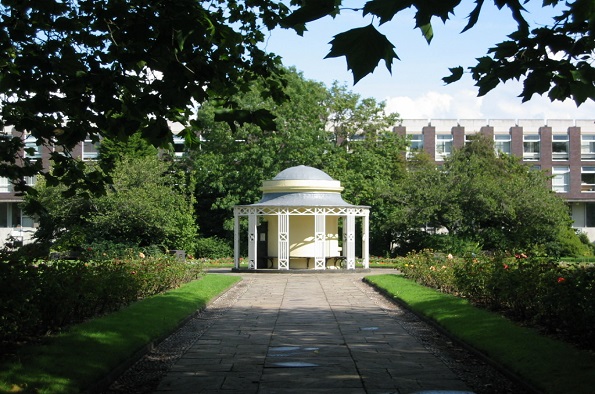
Annual Collinson Lecture in German
- Lyn Marven
- Admission: This is a free event, however, please register via the Eventbrite link provided
- Book now
Add this event to my calendar
Click on "Create a calendar file" and your browser will download a .ics file for this event.
Microsoft Outlook: Download the file, double-click it to open it in Outlook, then click on "Save & Close" to save it to your calendar. If that doesn't work go into Outlook, click on the File tab, then on Open & Export, then Open Calendar. Select your .ics file then click on "Save & Close".
Google Calendar: download the file, then go into your calendar. On the left where it says "Other calendars" click on the arrow icon and then click on Import calendar. Click on Browse and select the .ics file, then click on Import.
Apple Calendar: The file may open automatically with an option to save it to your calendar. If not, download the file, then you can either drag it to Calendar or import the file by going to File >Import > Import and choosing the .ics file.
Professor Owen Evans (Edge Hill University)
The coronavirus pandemic brought a new, and unprecedented, dimension to notions of borders and restricted freedom of movement with countries the world over imposing lockdowns, tiers, red lists and vaccination passports to attempt to control and monitor mobility domestically and internationally. But for all that Covid-19 has preoccupied so many of us for so long, there has been no respite for those who have been forced to flee for their lives or to seek a better way of life during the pandemic. Events in Afghanistan following the return of the Taliban, on the Poland-Belarus border, and the continued tragic loss of life in the English Channel and the Aegean Sea all brought the plight of refugees back to the fore during the pandemic. At time of writing, though, it is the distressing images from Ukraine that perhaps haunt most of all.
This lecture will contribute to the body of film scholarship on cinematic representations of migration since 2000 by exploring three German films, namely Lichter/Distant Lights (Schmid 2003), Gold (Arslan, 2013), and Western (Grisebach, 2017). It will elucidate the ways in which the filmmakers seek to evoke empathy by deploying what we might call ‘prosthetic affect’, since each either equates experiences of German characters directly to those of refugees, as in Lichter, or specifically reimagines the German characters as economic migrants, thereby rendering them ‘other’, in the cases of Gold and Western. German, and by extension Western European, viewers are therefore brought closer affectively to the migrant perspective to such an extent that they might more readily see themselves in the characters in question. In particular, the talk will examine the filmmakers’ deployment, or adaptation, of the Western genre for the tales they tell.
